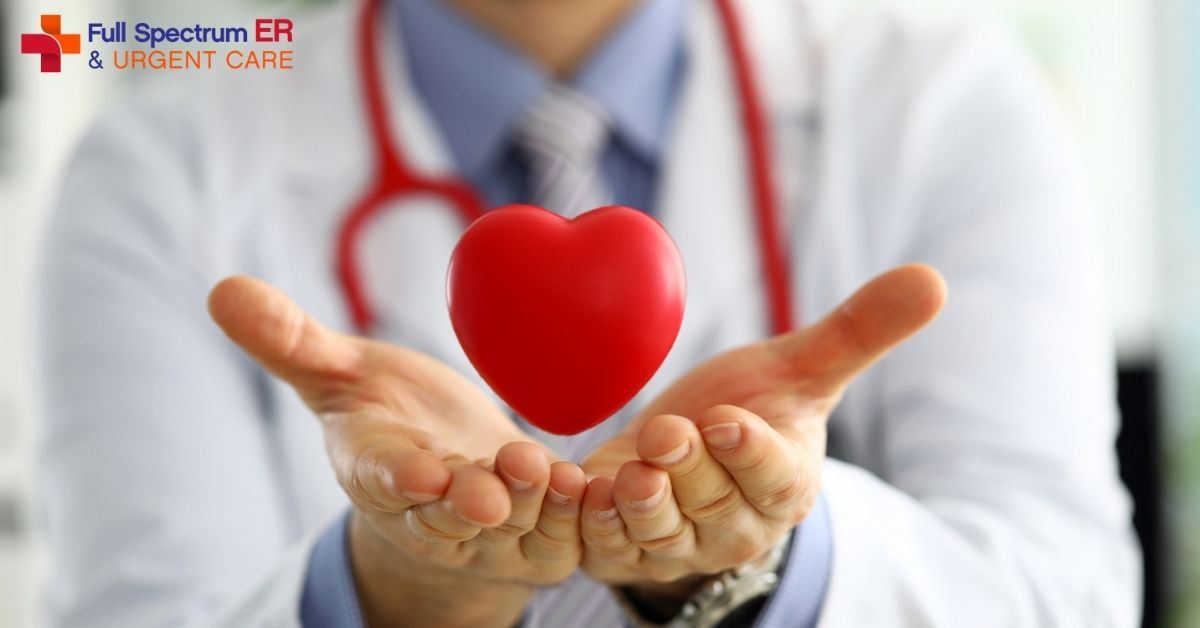
Defining Cardiovascular Disease
According to the Centers for Disease Control and Prevention (CDC), cardiovascular disease is the leading cause of death in the United States, contributing to nearly 659,000 deaths each year. But what exactly does the term “cardiovascular disease” refer to?
Cardiovascular disease is an umbrella term for multiple conditions of or relating to the heart, arteries, and blood vessels. This includes coronary heart disease, heart attacks, stroke, congenital heart defects, and more.
However, the National Heart, Lung, and Blood Institute of the National Institute of Health clarifies that the term “heart disease” actually differs from “cardiovascular disease.” While often used interchangeably, the phrase “heart disease” specifically refers to the heart’s structure and function.
Both cardiovascular disease and heart disease can lead to a heart attack. Here is everything you need to know:
What is a Heart Attack?
Your heart is attached to blood vessels consisting of arteries and veins. Arteries are responsible for carrying blood away from your heart, and veins carry blood back to your heart. Plaque, or a buildup of fat, cholesterol, and other substances, can cause your arteries to narrow. Blood clots form around the plaque, blocking the blood flow to your heart or cutting the blood flow off completely. This starves your heart of oxygen and nutrients, leading to a heart attack.
After experiencing a heart attack, your heart muscle can heal and recover. Depending on the injury your heart endured, it can take several weeks for your heart to repair. Although your heart may be weakened, lifestyle changes and proper treatment can restore you back to health.
Symptoms of a Heart Attack
Symptoms and warning signs of a heart attack vary on an individual basis and typically differ between men and women. However, some of the most common warning signs include:
- Chest pain or discomfort.
- Pain or discomfort in one or both arms, the back, neck, jaw, or stomach.
- Shortness of breath.
- Cold sweats, nausea, or lightheadedness.
According to the American Heart Association, heart disease is the number one cause of death in women in the United States. It is common for women to experience symptoms that resemble those of influenza, acid reflux, or normal aging. Because the warning signs get mistaken for other conditions, women often don’t seek the life-saving medical attention they need.
Understanding the Risk Factors
To live a heart-healthy life, it is important to know and understand the risk factors that can increase your chances of developing cardiovascular disease. While some risk factors are out of your control, such as age, gender, and family history, others require lifestyle changes to improve your overall health.
Some risk factors include:
- High cholesterol.
- High blood pressure.
- High blood sugar.
- Smoking.
- Obesity.
- Sedentary lifestyle.
- Stress.
- Alcohol.
- Nutrition.
The CDC reports that nearly half of all Americans have at least 1 of 3 key risk factors between high cholesterol, high blood pressure, and smoking.
Preventing Cardiovascular Disease
Cardiovascular disease prevention begins early in life with education and awareness. However, as life continues, there are steps you can actively take to reduce your risk of cardiovascular disease and heart attack. Developing healthy habits and establishing lifestyle changes could be life-saving.
The American Heart Association reports that at least 150 minutes of physical activity per week can reduce your blood pressure, cholesterol level and keep your weight at a healthy level. In addition to exercise, it is essential to limit your alcohol, stop smoking, and eat well-balanced meals.
Emergency Services You Can Trust
The professionals at Full Spectrum Emergency Room and Urgent Care are prepared to handle any emergent condition life may throw your way. We want you to feel confident that you are receiving the best care possible at our facilities. If you are experiencing symptoms of a heart attack, do not hesitate to seek medical attention or call us immediately at (210) 429-8313.

